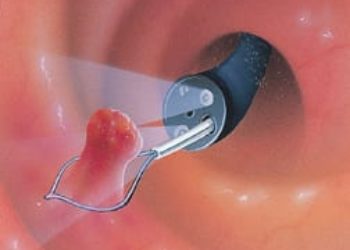Insurance coverage rates among poor new mothers increased after Medicaid expansion
1. After the expansion of Medicaid under the Affordable Care Act (ACA), there was an increase in Medicaid coverage rates and decrease in uninsurance and private insurance rates among new mothers earning less than 100% of the federal poverty level (FPL).
2. Nearly half a million new mothers were uninsured in 2017, the majority of whom lived in states that did not expand Medicaid.
Evidence Rating Level: 3 (Average)
Study Rundown: Prior to the expansion of Medicaid under the ACA to adults earning up to 138% of the federal poverty level (FPL), new mothers earning up to 133% of the FPL were covered in the perinatal period for up to 60 days postpartum. Approximately half of these new mothers experienced uninsurance after the end of their perinatal Medicaid coverage, but it was expected that coverage for poor new mothers would increase after the ACA. In this study, researchers used survey data from the 2010-2017 American Community Survey from the US Census Bureau to compare insurance coverage among poor new mothers before and after Medicaid expansion. Approximately 451 000 new mothers were uninsured in 2017. Mothers who earned less than the FPL had increased rates of Medicaid coverage and decreased rates of uninsurance and private insurance after Medicaid expansion. Overall, there was an approximately 28% decrease in uninsurance among poor new mothers from the pre-ACA mean in expansion states.
This study was limited by self-reported measures of insurance coverage, and inability to determine with greater specificity when women gave birth. Furthermore, collected data reported annual income whereas Medicaid eligibility is determined by monthly income. Nonetheless, this study is strengthened by its large, nationally representative sample and examination of Medicaid eligibility threshold as a continuous variable. For physicians, these findings highlight the continued importance of addressing uninsurance among new mothers, especially in nonexpansion states.
Click to read the study, published today in Pediatrics
Click to read an accompanying editorial in Pediatrics
Relevant reading: Women In The United States Experience High Rates Of Coverage ‘Churn’ In Months Before And After Childbirth
In-Depth [cross-sectional study]: Researchers used survey data from the 2010-2017 American Community Survey data to examine the impact of ACA Medicaid expansions on coverage for poor new mothers. Poor new mothers were defined as women aged 19 to 44 years who had given birth in the past 12 months with incomes below the FPL. Women who were not US citizens, receiving Medicare or Supplemental Security Income, or were earning 100-138% of the FPL were excluded. A difference-in-differences approach was used to estimate coverage changes in poor new mothers after changes in Medicaid-eligibility thresholds by state.
After controlling for sociodemographic characteristics, state fixed effects, and year fixed effects, a 100-percentage-point increase in Medicaid-eligibility threshold was associated with a 8.8-precentage-point decrease in uninsurance, a 13.2-percentage-point increase in Medicaid coverage, and a 4.4-percentage-point decrease in private or other coverage among poor new mothers. The actual average increase in Medicaid eligibility across expansion states was 64 percentage points. This suggests a 5.6-percentage-point decrease in uninsurance among poor new mothers, which is a 28% decrease from pre-ACA levels. There remained an estimated 142 000 uninsured poor new mothers who were citizens, the majority of whom lived in states that did not expand Medicaid, and approximately 161 000 uninsured poor new mothers who were noncitizens.
Image: PD
©2020 2 Minute Medicine, Inc. All rights reserved. No works may be reproduced without expressed written consent from 2 Minute Medicine, Inc. Inquire about licensing here. No article should be construed as medical advice and is not intended as such by the authors or by 2 Minute Medicine, Inc.







